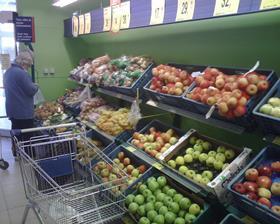
The Czech Republic’s move to strengthening its country of origin labelling laws for fresh producehas drawn praise from the other side of the globe.
From 2017, milk, wine and unprocessed food producers will only be able to label their products as Czech if they are produced in the country from 100 per cent Czech raw materials.
Richard Mulcahy, chief executive of Australia’s peak industry body for vegetable growers Ausveg, said new laws made the European nation a world leader in providing consumers with clear information about the origin of their produce.
“Ausveg welcomes the announcement of labelling reform from the Czech Republic, as it highlights that there is increasing global support from consumers for clear information about the food products that they buy,” Mulcahy said.
“This initiative also shows that fears expressed by some manufacturers when the Country of Origin Labelling debate started in Australia that EU countries might litigate Australia through the World Trade Organisation have little credibility. The new laws will prevent companies from using ambiguous and deceitful labelling to mislead consumers into thinking their food was locally grown.”
Australia’s country of origin labelling system has been in the spotlight following a health scare involving frozen imported berries in early 2015, with the Australian government pledging its committing to reform. Proposed changes to the way that food manufacturers must label the country of origin of their products are currently open for consultation for businesses and the general public.
“The proposed changes announced by the Australian government are far from perfect but are a step forward. Effective reform would ideally require the origins of all key ingredients to be displayed on food products and would also eliminate the misleading claim Made in Australia,” explained Mulcahy.
“Ausveg has been a strong advocate of labelling reform in Australia over many years, calling for transparency in our labelling system so that consumers can make informed decisions about their food purchases.”



